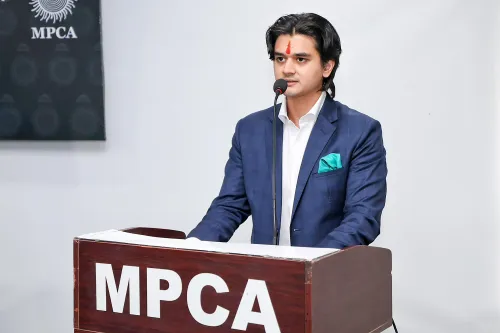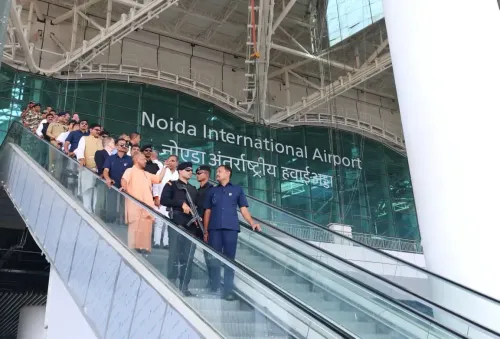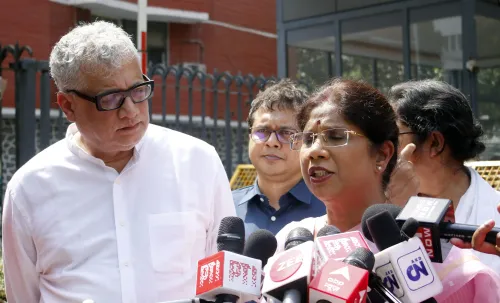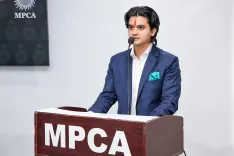WEF 2025: Ashwini Vaishnaw Stresses Focus on Manufacturing and Services for Economic Growth
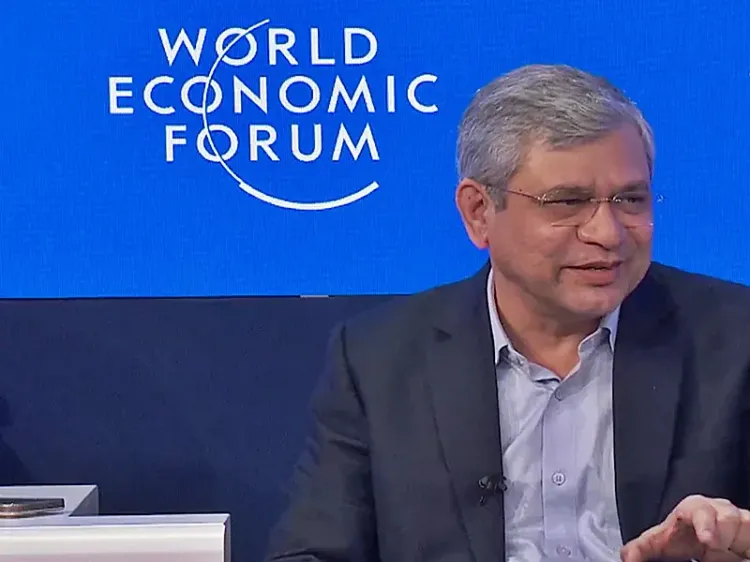
Synopsis
Key Takeaways
- India's economic growth is driven by both manufacturing and services.
- The nation is shifting towards an export-oriented growth model.
- India is becoming a significant player in the semiconductor and AI industries.
- Global Capability Centers are crucial to India's manufacturing ambitions.
- Government initiatives focus on skilling the workforce for future technologies.
Davos, Jan 24 (NationPress) The Minister of Electronics and IT, Ashwini Vaishnaw, emphasized India’s comprehensive strategy for economic advancement, highlighting that both manufacturing and services are pivotal for the country's growth during his address at the World Economic Forum.
Speaking to global leaders and industry pioneers, the minister stated: "It cannot be just manufacturing or services; it must be a combination of both, as these sectors are essential to India’s economic trajectory."
He stressed the shift in India’s focus from merely import substitution to a proactive “Make in India, Make for the World” philosophy.
With 99 percent of mobile phones utilized domestically now produced in India, the growth strategy has transitioned towards export-oriented growth in various sectors including pharmaceuticals, chemicals, and garments.
Vaishnaw pointed out India’s rise in the semiconductor and AI sectors, asserting that “most leaders in the semiconductor industry currently believe that India will soon be among the top three destinations for semiconductors.”
Highlighting the reasons behind the increasing attraction of global companies towards India, the Union Minister pointed to the nation’s “unique advantage” grounded in trust, a wealth of talent, and remarkable design capabilities.
He acknowledged the leadership of Prime Minister Narendra Modi for fostering an environment of global trust, which encourages companies to relocate not just their supply chains but also their value chains to India.
“With nearly 2,000 Global Capability Centers (GCCs) engaged in advanced designs, India is set to become a significant player in global manufacturing,” he stated.
With artificial intelligence (AI) in the services sector ready to play a crucial role in shaping India’s future, driving innovation and creating opportunities, the Union Minister underscored the importance of training the talent pool in AI.
He highlighted India’s potential to emerge as the “use case capital” of the world, developing innovative applications for global industries. He remarked that while AI models are increasingly becoming commoditized, the focus should be on creating use cases, applications, and solutions tailored for industries worldwide.
“Experts believe that India has the potential to dominate the world in AI services, mirroring its success in the IT services sector,” noted the minister, emphasizing India’s capability to influence the global AI landscape.
Vaishnaw reiterated the government’s commitment to skilling the workforce for emerging technologies, especially in artificial intelligence (AI).
“We have set an ambitious goal to equip at least 1 million individuals with AI tools and skills, enabling them to develop use cases and applications that are in demand globally,” the minister declared.
He outlined similar large-scale initiatives in other fields, such as establishing 5G labs in 100 universities to prepare students for the telecom industry and providing advanced EDA tools in 240 universities to train students in semiconductor design.
By aligning educational curricula with industry requirements, the government is ensuring a skilled workforce at every level of the value chain, with improvements already visible across various sectors, he concluded.


